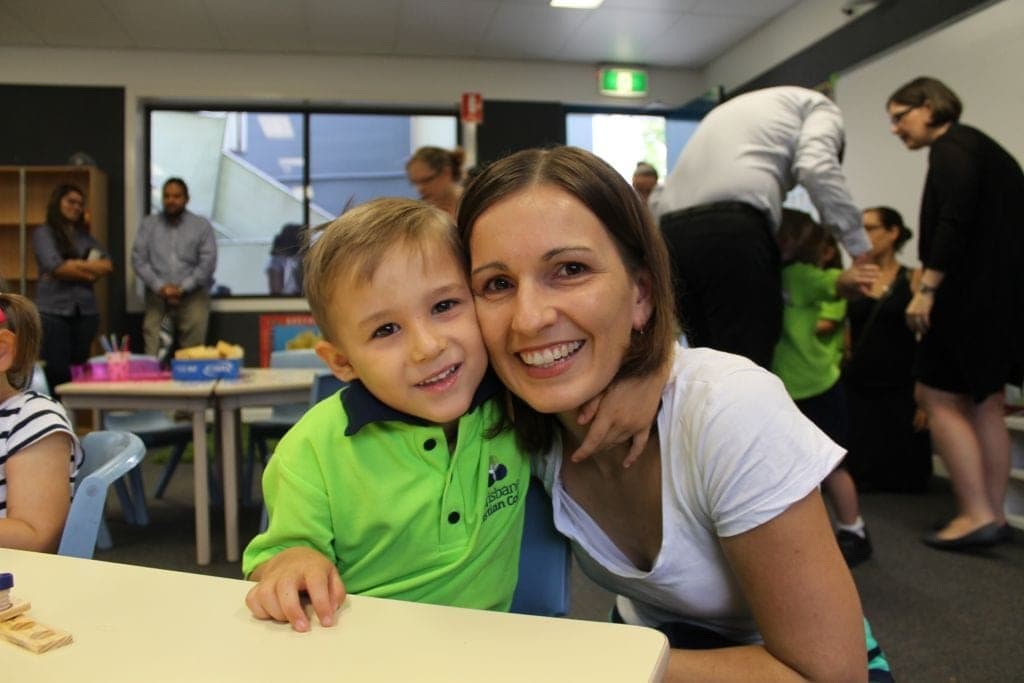The transition to the first year of school can be daunting for both parents and students. For some children there is an eagerness to begin this exciting adventure but for other children careful planning is required to settle those nervous fears. The following seven steps will help all parents prepare their child for their first and subsequent years of school.
A healthy diet
This is vital to ensure that your child has the physical, emotional and mental energy needed for a busy school day. It is well proven that a good breakfast improves student performance at school. Make sure your child has a drink, some cereal or toast, and some fruit or protein before coming to school. Also plan healthy lunches for your child which will give them sustained energy for their school day.
Chocolates and lollies do not give sustained energy and should be seen as treats only. Sometimes resealable bags are easier for younger children to manage than cling wrap. A bottle of water is essential especially to keep your child hydrated.
Be on time to school each day.
Arriving a five minutes before school starts is a great way to help your child feel organised and ready to learn. Arriving late can be embarrassing and unsettling. Remember that on school days there is a lot of traffic on the road so allow extra time for the trip to school.
Consider making a morning routine and checklist of things to remember when you walk out the door so that nothing is forgotten. At school, when the bell rings, say goodbye to your child with a smile and assurance of your return at the end of the day. If you are upset and anxious, your child will pick up on this and think that school is an upsetting place. If your child is upset, give them a hug and smile, and then leave. Your teachers will have activities to engage your child. Lingering too long can prolong the adjustment process.
Explain to your child that he/she needs to listen to and follow instructions from the teacher.
Young children sometimes are used to parents doing the thinking and organising for them. It can help to explain to your child that they need to listen and think for themselves at school, and that you want them to respect the teachers and have a happy day. The increased need for independence for your child is a big adjustment. Consider having a conversation with your child about school routines and what to expect.
Make sure your child’s belongings are clearly labelled.
Lost drink bottles, lunch boxes and lids, hats and school jumpers can all be returned to the child if they are named and become misplaced. For a young child a lost item can be stressful and a simple label can avoid this stress.
Chat with your child about school and encourage good friendships.
Encourage your child to have play dates with school friends. If your child comes home with “a story” that concerns you, listen and ask questions. Remember your child may be telling the truth as they understand it, but their “story” is from the perspective of a child. Speak to your child’s teacher about any concerns and ensure that you have the adult perspective.
Participate in your child’s learning where possible.
Attending information nights and parent-teacher interviews communicates to your child that you are interested in his/her education. Consider getting involved with school parent groups, and attend special events in the life of the school. Inquire about assisting with preparation of resources in the classroom or helping with reading groups if you are able to help. If your child sees that you value education, they will be more likely to value it themselves.
Make sure your child gets a good night’s sleep.
Your child’s best sleep occurs before midnight, so always make sure your Prep child goes to bed before 7.30 pm on school nights, Avoid giving your child sugar or chocolate before bedtime. Establish a bedtime routine with a shower, brushing teeth, and a story time to settle your child into a pattern of quickly going to sleep. There are many days of school before the holiday break and little bodies get tired, so a good night’ rest is very important. A well-rested child will be emotionally more able to manage the stresses of a school day.

Written by Laraine Tanzer, Head of Primary School. Brisbane Christian College
This article was published in Issue 14 of our print magazine, February/March 2016.

